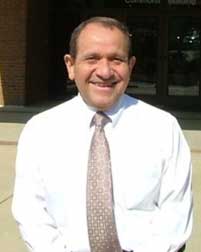History of AFTA“It is a collection of mavericks and visionaries that constantly explore new frontiers of clinical and non-clinical practices…"2-Ramon Rojano, Ph.D., Member since 1997 AFTA – The Association that changed its nameOfficially founded in 1977, AFTA was a gleam in the eye of the family therapy field as early as 1969 when the leaders of the new “discipline” of meeting with families began discussing the possibility of an organization. Jay Haley, the outgoing editor of Family Process, warned in his last editorial that there were dangers inherent in both discipline and respectability. Especially for a movement that had started as the invention of renegades and mavericks, the inventors of family therapy approached the idea of an organization with great caution. They were, after all, experts in the bad consequences of power and conflict in the family, and did not want to set up an organization that would have any resemblance to the paternalistic traditions of other therapy organizations. Psychoanalysis, as well as “The APAs” of psychiatry and psychology were restricted to those with certain training. They were guilds. The meetings of the founders of AFTA during the early seventies were focused on two questions – (1) What would be the most productive definition of family therapy? and (2) Who should be recognized as a practitioner – a worker with something to contribute? And behind this loomed the question – should the new Association be, like the others, a credentialing body? Should there be certification in the practice of family therapy? After a few years of meetings and debate, the founders decided on the most open solution, relieved by the news that their colleagues in the American Association of Marriage and Family Therapy, were ready to be a guild with credentials for membership. AFTA decided to not be an “Association” at all. It renamed itself the American Family Therapy Academy, to emphasize the importance of discussion between workers with all kinds of experience – including research, even research in apparently unrelated fields. This would keep the way open to the original atmosphere of invention and exploration. Members were welcomed for their interests and experience, and indeed at the first meeting the uniquely “AFTA” kind of meeting, the “interest group” was the main format. If you had an interest, – couples, children, psychosis, training – you were welcome at that group. Or you could propose one of your own. Research-practice meetings were another invention. Special conferences were organized between practitioners and researchers, aimed at generating new ideas for both. Researchers at these meetings often were not regular members of AFTA. Finally, each annual meeting ended with a few hours of open general discussion about how to make the next meeting better. This was, after all, our expertise – how to improve communication between members, bringing out the views of the least influential. In this way AFTA dealt early on with issues of race, gender, seniority and power among ourselves, as well as in the families of our clients. –Christian Beels, M.D., M.S. 1. The Word from our Members“To me, a Founding Member of AFTA, AFTA will irrevocably be linked to the core of family therapy and family systems thinking. When I started out in the middle 1970’s, the field was incredibly vital and dynamic. Family therapy was the cutting edge in thinking about human behavior and psychotherapy. One of the things that accounted for that vitality was that family therapy was interdisciplinary—it brought people and ideas together from clinical psychology, psychiatry, social work, pediatrics and nursing. It brought researchers together with clinicians and educators. No single discipline owned the field. Today AFTA still represents what is best about family therapy. It provides the only truly interdisciplinary context for family therapists from around the world to get together and share ideas and develop relationships. It has no organizational axe to grind and no institutional allegiance. It is as open to arguments against family therapy as it is to arguments for family therapy. One of the most wonderful things about AFTA is its size. It is small enough that people can get to know each other in an intellectually and sometimes personally intimate context. It is also a context that cares in that it realizes that our ideas and interventions are only as good as we are as people." -Bill Pinsof, Ph.D., Charter Member  2. The Word from our Members“AFTA began as a challenge to the traditional psychoanalytic and biological ways of thinking. Since its inception, it has attracted a cadre of independent and creative thinkers that continuously challenge mainstream frames, always promoting out of the box ideas. It is a collection of mavericks and visionaries that constantly explore new frontiers of clinical and non-clinical practices…committed to the development of expanded paradigms, members of this organization have substantially contributed to the development of more open definitions of families, and have influenced the incorporation of issues of gender, sexual orientation and cultural and economic diversity into the world of clinical practice.” -Ramon Rojano, Ph.D., Member since 1997  Elsewhere in the section |

